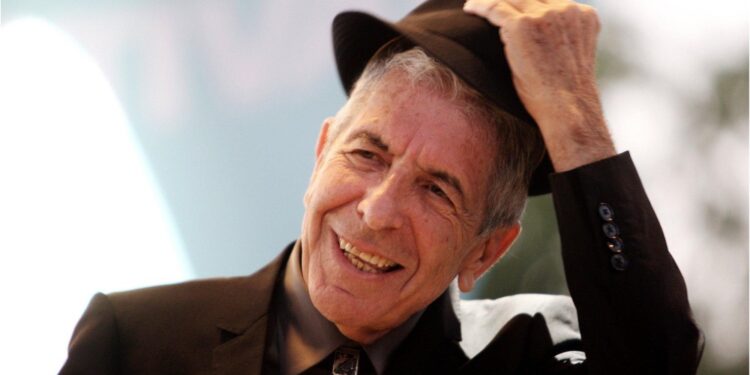Born into words before melody
Leonard Cohen’s journey began in Montreal in 1934, in a household steeped in culture and faith. From an early age, he was drawn to literature, devouring the works of Yeats, Lorca and the Bible. His first collection of poetry, Let Us Compare Mythologies (1956), already revealed a young man fascinated by longing, divinity and the frailty of the human spirit. Before he ever set foot on a stage, Cohen had built a quiet reputation as one of Canada’s most promising literary voices.
The reluctant musician
By the mid-1960s, Cohen grew frustrated with the limited reach of poetry. Moving to New York, he began setting his words to music, and in 1967 released Songs of Leonard Cohen. His baritone voice, low and untrained, became the perfect vessel for his lyrical austerity. Songs like Suzanne, Sisters of Mercy and So Long, Marianne felt like whispered prayers—intimate, imperfect, yet profoundly human. He wasn’t a performer in the traditional sense; he was a poet who happened to find his truest instrument in the guitar.
Darkness, faith and the search for meaning
Across his career, Cohen’s art wrestled with the twin forces of faith and desire. Albums such as Songs of Love and Hate (1971) and Various Positions (1984) offered meditations on devotion and loss. Hallelujah, now sung in churches and films alike, was written as both a hymn and a confession. Behind his stoic delivery lay a lifelong battle with depression, countered by humour, Buddhism and a relentless need to make sense of the divine. He once remarked that poetry was “the Constitution of the inner country”, and in that realm, Cohen ruled with humility.
Resurgence and farewell
After financial betrayal in the early 2000s, Cohen returned to touring in his seventies, performing with the grace of a man reconciled with his past. Albums like Old Ideas (2012) and You Want It Darker (2016) revealed a voice weathered but sharper than ever. On the latter, released just weeks before his death at 82, he addressed God directly: “Hineni, I’m ready.” It was not resignation but acceptance—the poet’s final bow before silence.
A voice that endures
Cohen’s legacy lies in the spaces between words: in restraint, honesty, and the courage to face imperfection. His work remains proof that beauty can live alongside brokenness, and that love and loss are not opposites but reflections of the same truth. For listeners and readers alike, Leonard Cohen endures not because he promised answers, but because he taught us to live gracefully within the questions.
Newshub Editorial in North America – 7 November 2025




Recent Comments